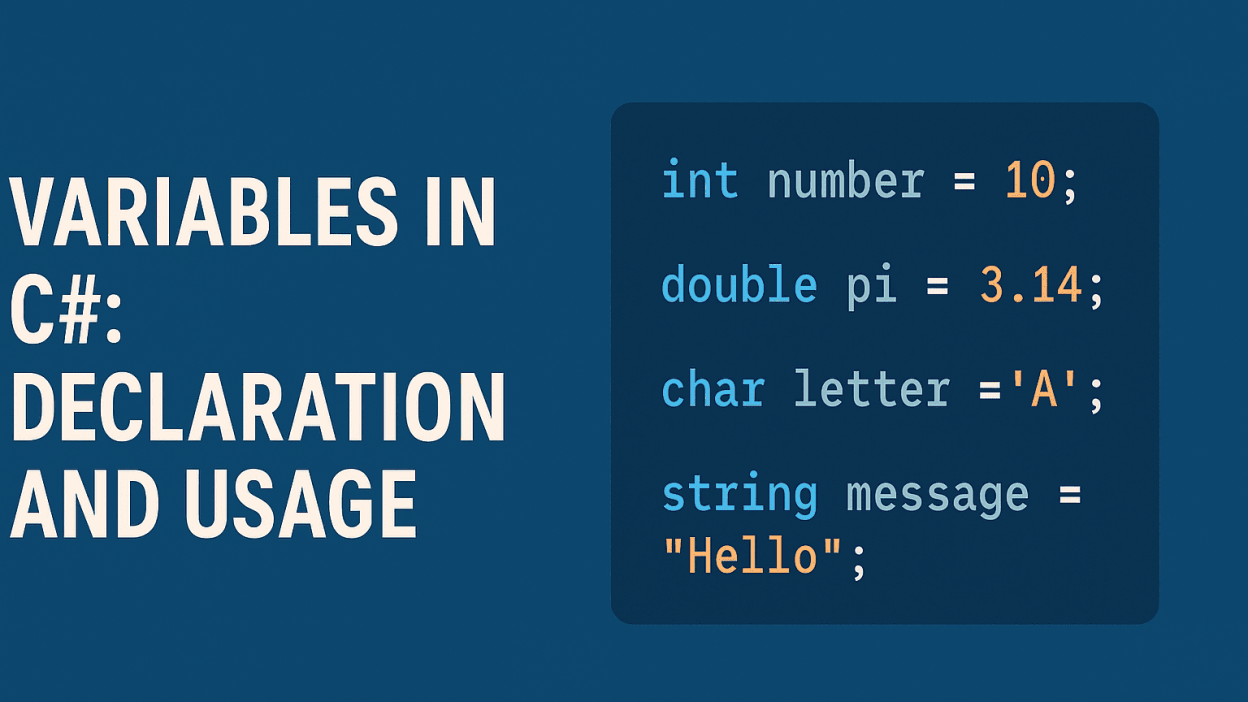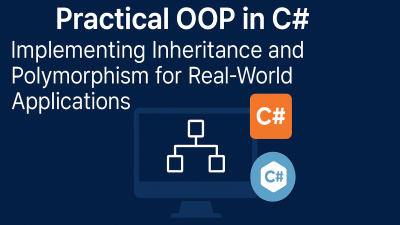Variables are fundamental in C# programming, enabling developers to store, modify, and manage data efficiently. This guide explores variable types, declaration methods, and the importance of mutability and immutability in writing robust code.
Understanding Variables
A variable is a named memory location that stores data during program execution. They allow dynamic data handling, such as storing user inputs, computation results, or configuration settings.
Common Variable Types in C#
C# supports various data types, each designed for specific use cases:
- int – Stores whole numbers (e.g., int count = 10;).
- double – Holds floating-point numbers (e.g., double price = 19.99;).
- string – Represents text (e.g., string name = “Alice”;).
- bool – Stores true or false values (e.g., bool isValid = true;).
- Arrays – Collections of the same type (e.g., int[] scores = {10, 20, 30};).
Using the correct data type ensures type safety and prevents runtime errors.
Declaring and Initializing Variables
In C#, a variable must be declared with its type before use. Initialization can be done at declaration or later:
int age = 25; // Declaration with initialization
string message; // Declaration only
message = "Hello, World!"; // Later assignment C# enforces type safety, meaning variables cannot change their type after declaration.
Mutable vs. Immutable Variables
Mutable Variables
Can be modified after declaration:
int counter = 1;
counter = 2; // Valid – value can change Immutable Variables
Cannot be changed after assignment. C# provides two ways to enforce immutability:
- const – Compile-time constant (must be initialized at declaration):csharpCopyDownloadconst double PI = 3.14159;
- readonly – Runtime constant (can be set once, typically in a constructor):csharpCopyDownloadreadonly int maxAttempts; public MyClass(int attempts) { maxAttempts = attempts; }
Best Practices for Variable Usage
- Use meaningful names – Prefer userAge over x.
- Follow naming conventions – Use camelCase for local variables (e.g., totalAmount).
- Choose the correct data type – Avoid mismatches like assigning a string to an int.
- Prefer immutability where possible – Use const or readonly for values that shouldn’t change.
Conclusion
Effective variable management is crucial in C# programming. By understanding variable types, mutability, and best practices, developers can write cleaner, more efficient, and error-resistant code. Mastery of these concepts ensures better control over data and improves program reliability.



